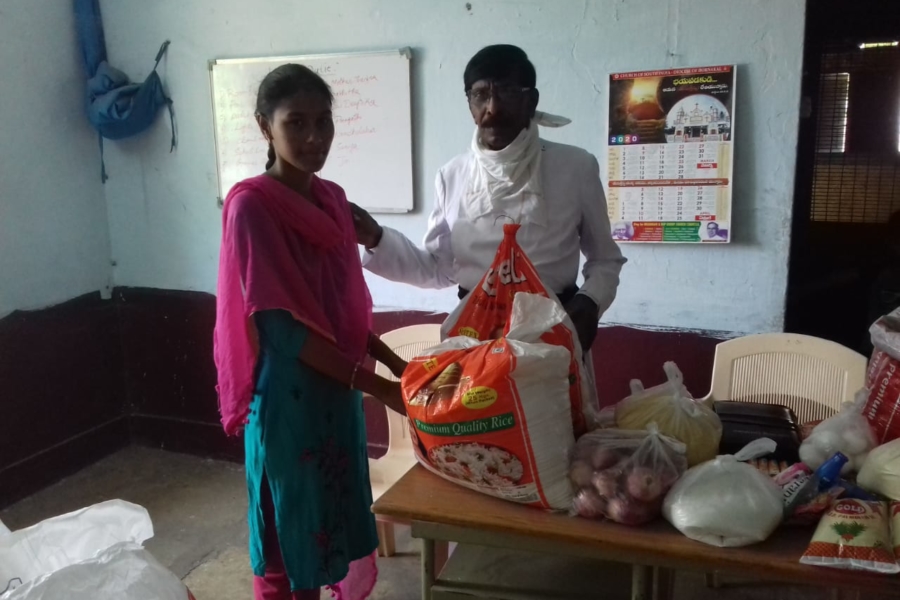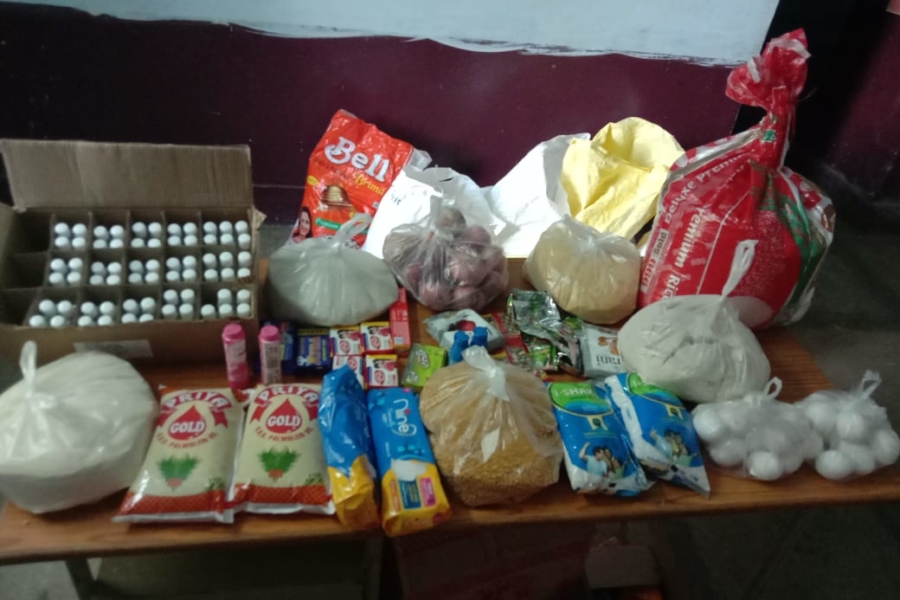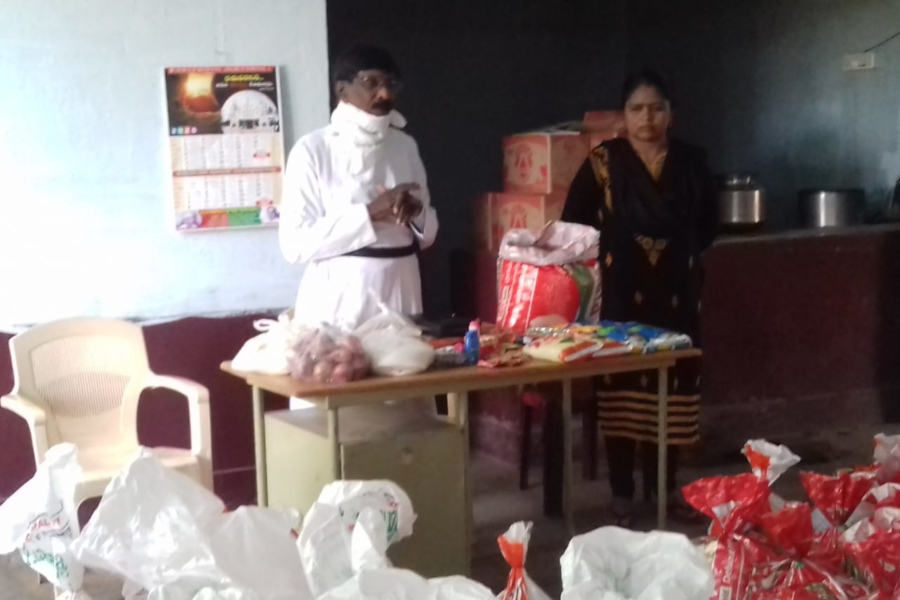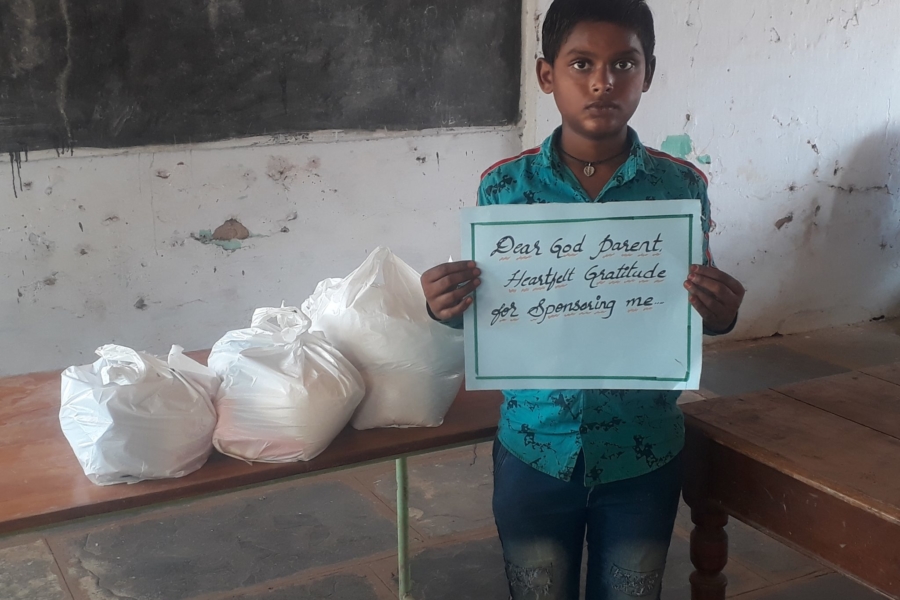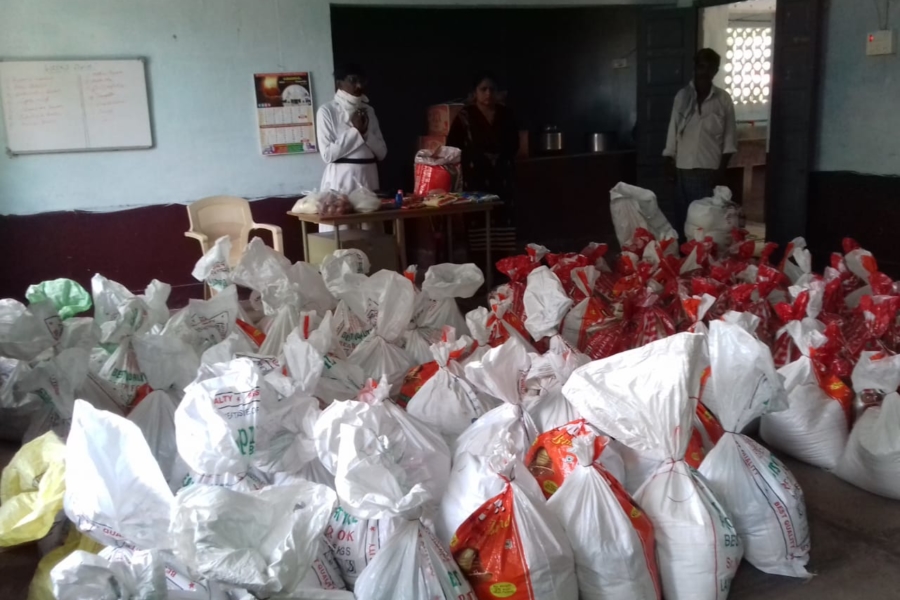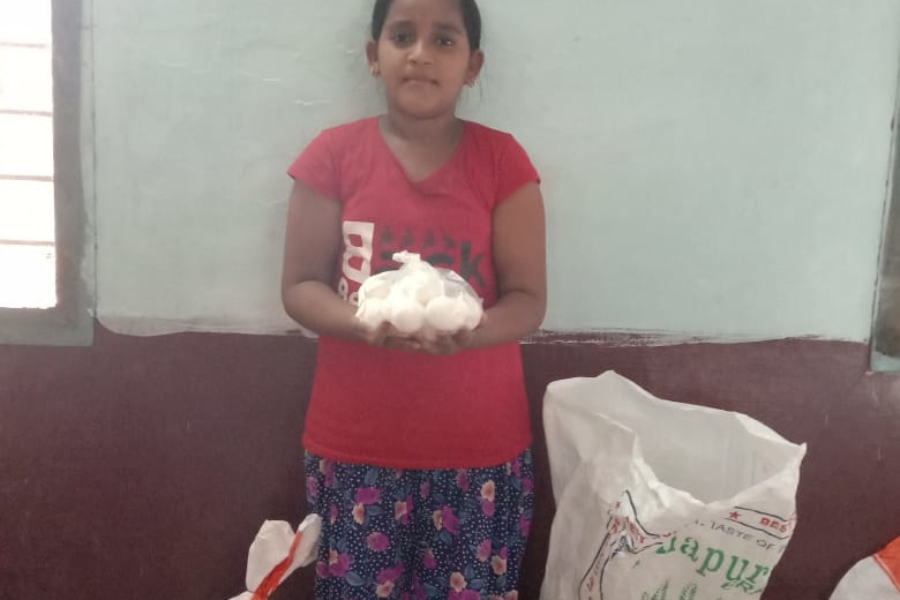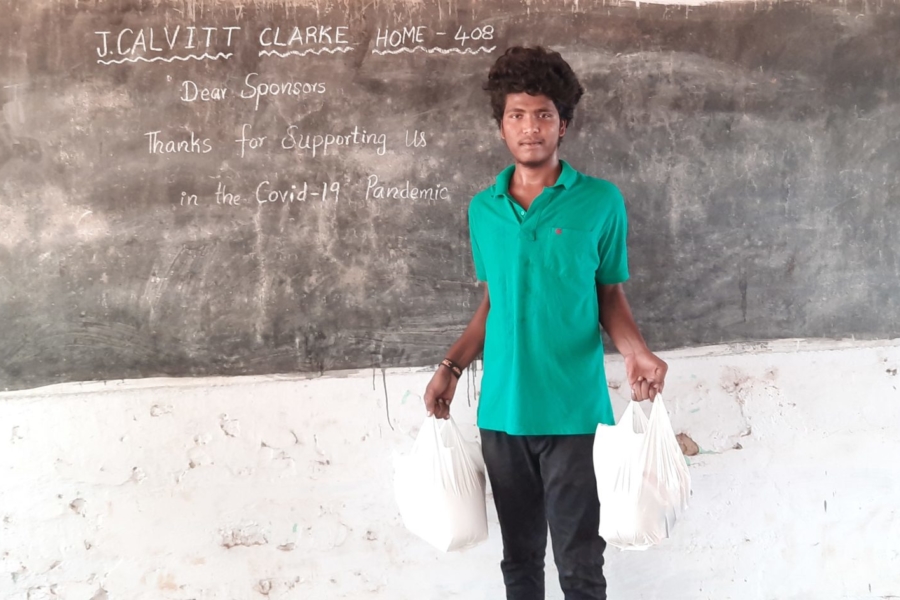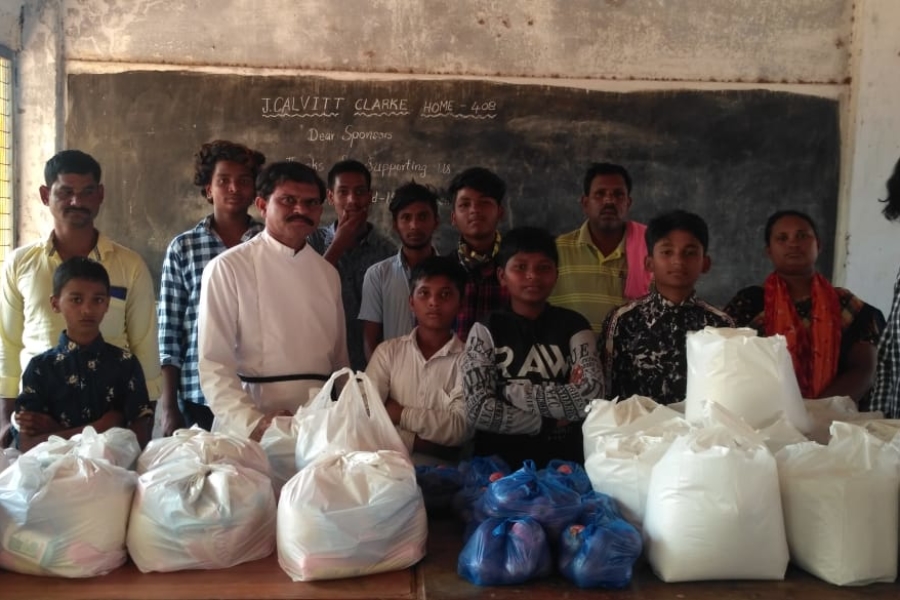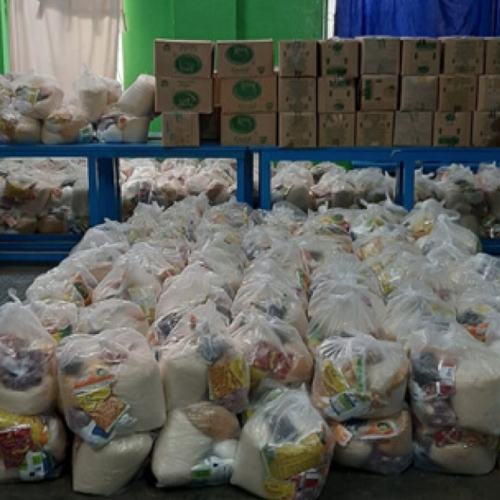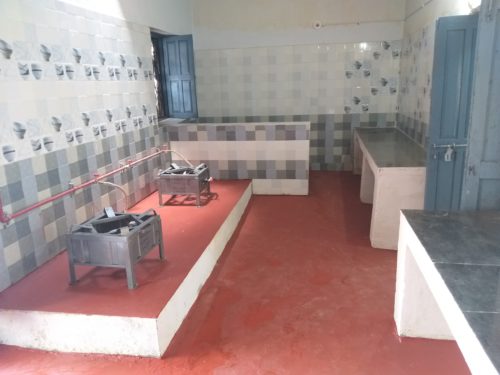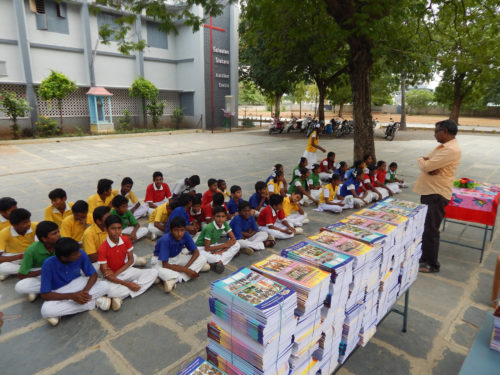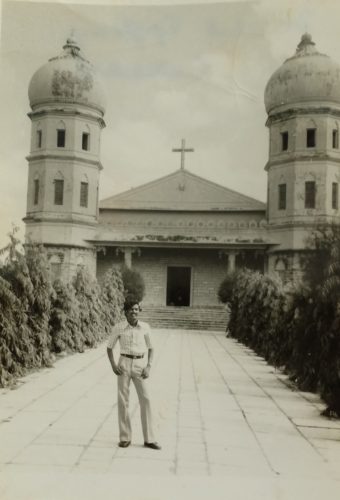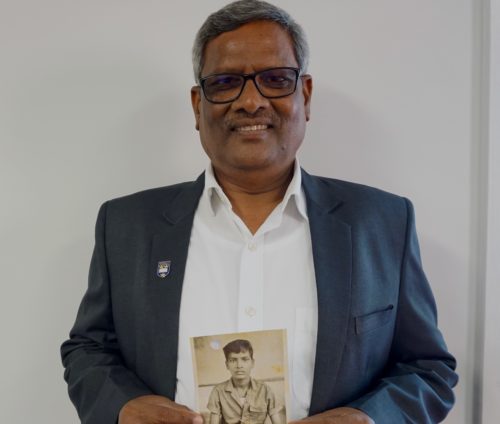Thanks to donations to our COVID-19 Response Fund, our affiliated projects in India are able to provide food and hygiene items to children to take home to their families.
Like many countries around the world, COVID-19 infection cases have risen in India despite a strict lockdown that began in late March and was partially lifted at the end of May. Currently, India is the fourth worst-hit nation in the world behind the United States, Brazil, and Russia — and the worst-hit Asian country to date.
In India, most of our affiliated projects are group homes for children, in which they live throughout the year. Due to the COVID-19 outbreak and the lockdown, our sponsored children and their families are at home and receiving food, hygiene items, clothes, and any other necessities, as they cope with the situation.
We recently heard from our volunteer coordinator at the J. Calvitt Clarke Home in Dornakal, India regarding the support we have provided to children in our program at this time.
“Dear Children Incorporated,
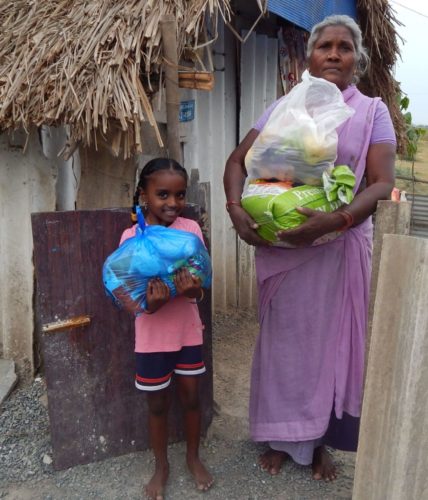
Thanks to donations from our supports, families in India are receiving much-needed food.
The parents of the children [in the Children Incorporated Program] were happy to receive the given items to support their daily nutritional needs in the middle of this time. We have distributed items such as rice, oil, onions, and soap to the families, among other food items, and the beneficiaries convey their heartfelt thanks to the organization for the support.”
About India
From the snowcapped Himalayans to tropical beaches, India is truly a nation of contrasts. It boasts a rich history spanning tens of thousands of years. In fact, the earliest known civilization in South Asia once called India’s fertile Indus Valley home. Today, with the world’s second-largest population, India includes a staggering variety of ethnicities, languages, religions and cultures. Its wealth of natural resources and vibrant cultures, however, belie the abject poverty in which so many of India’s citizens live.
Our affiliated projects
Like many countries around the world, COVID-19 infection cases have risen in India despite a strict lockdown that began in late March and was lifted at the end of May.
Auxilium School
Guntur, Andhra Pradesh, India
Founded in 1981 and run by members of the Salesian Sisters, the Auxilium School provides the poorest children of the Guntur slums — as well as children from surrounding rural areas — with shelter, nutrition and education. As a caring sponsor, you are coming alongside these dedicated Sisters and providing these students with the hope, education and opportunity they need to rise above the difficult socio-economic circumstances from which they come.
Parikrma Home
Bangalore, India
The Parikma Home was founded in 2003 as an extension of the Parikrma Humanity Foundation, a local nonprofit that strives to provide education to over 1000 children from slum neighborhoods across Bangalore. This “end-to-end” program serves children from the youngest ages all the way through to higher education and job placement. The home’s four core areas of focus are education, nutrition, health care, and family care. Its mission is to “unleash the potential of under-served children in urban India, which will provide them with equal opportunities and make them valuable contributing members of society.” Children who stay at the home receive their education at one of the nonprofit’s four “Centers of Learning” schools.
English Medium School and Hostel
Dornakal, Andhra Pradesh, India
Situated within the Cathedral compound in Dornakal, the English Medium School is run by the Church of South India. It offers impoverished children of this region shelter, nutrition and education.
St. Mary’s Girls’ Hostel
Khamman, Telangana, India
The St. Mary’s Girls’ Hostel boarding school was open in 1980 with a mission to address the poverty facing many of the families in this community. The hostel serves as a safe haven where these deserving young women receive immediate, basic needs, a well-rounded education, and the opportunity to reach for a better future.
Lou Ann Long Girls’ Hostel
Yadagiri, Karnataka, India
The Lou Ann Long Girls’ Hostel provides boarding, nutrition, and a quality education for area girls who come from impoverished families. At the Hostel, deserving young women receive the opportunity to break the cycle of poverty and rise above the difficult circumstances they face.
Dornakal Girls’ Hostel
Dornakal, Andhra Pradesh, India
Since its founding in the 1970s, the Dornakal Girls’ Hostel has provided countless girls from surrounding tribal settlements with education, encouragement, and a window into the outside world. Its mission remains to provide for these deserving girls’ immediate needs, while also investing in their future.
Kothagudem Girls’ Home
Kothagudem, Andhra Pradesh, India
Located in Andhra Pradesh, India, the Church of South India established the Kothagudem Girls’ Home to provide underprivileged girls basic needs along with a well-rounded education with the support of Children Incorporated sponsors.
Grace Aaron Childcare Center
Burgampahad, India
Founded by the Church of South India, the Grace Aaron Childcare Center provides shelter, nutrition and educational support for girls from the region’s poorest families. In this way — and with your support — the Grace Aaron Childcare Center offers these deserving young women the opportunity to break the cycle of poverty and rise above the difficult socioeconomic circumstances.
Thanks to donations to our COVID-19 Response Fund, our affiliated projects in India are able to provide food and hygiene items to children to take home to their families.
Chandrakal Boarding Home
Chandrakal, Telangana, India
Founded in 1950 by American missionary Lillian Woodbridge, the Chandrakal Boarding Home has provided education for thousands of impoverished children, many of whom have since made valuable contributions to their towns and villages in the fields of education, medicine and commerce. Due to the severe poverty in this area, most of the children’s parents are unable to pay tuition each month. Knowing that contributing to their child’s education gives the parents a great sense of pride, the home accepts whatever amount the parents can afford, and sponsorship donations cover the rest, along with other basic needs.
J. Calvitt Clarke Home
Dornakal, Telangana, India
Named in honor of the father of Children Incorporated-founder Jeanne Clarke Wood, the J. Calvitt Clarke Home serves impoverished children in this region by providing for their basic, immediate needs while also investing in their futures by way of a well-rounded education.
Durgi Home
Durgi, Andhra Pradesh, India
Originally established by the Catholic Diocese of Guntur in 1982, the Durgi Home began as a health center; ten years later, it expanded to include a boarding home, which provides area children with a place to stay while attending local schools. In 1998, brothers and sisters of the Order of the Sacred Heart opened a school nearby to further benefit the children of this community.
***
HOW DO I SPONSOR A CHILD IN India?
You can sponsor a child in India in one of three ways: call our office at 1-800-538-5381 and speak with one of our staff members; email us at sponsorship@children-inc.org; or go online to our sponsorship portal, create an account, and search for a child in India who is available for sponsorship.

